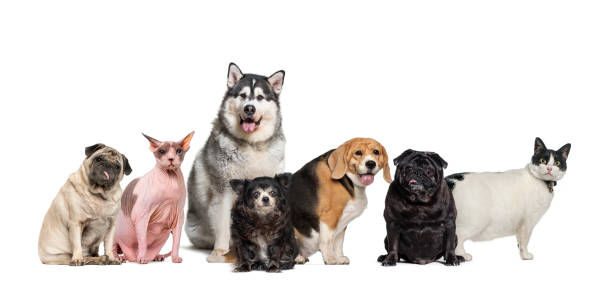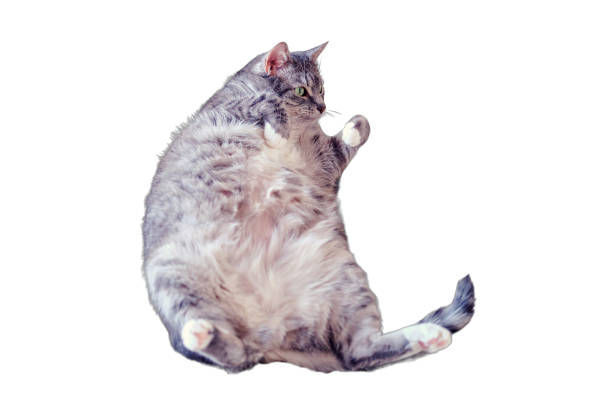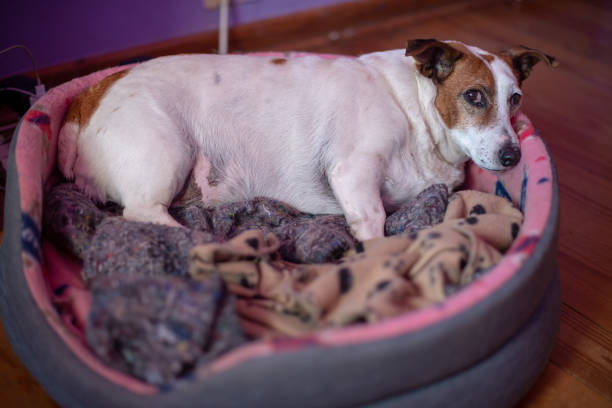Introduction
Obesity in pets is a growing health concern. It’s important to know how to prevent pet obesity so that you can keep your dog or cat healthy.

Obesity in pets is a major health issue.
Obesity in pets is a major health issue. It can lead to other health problems, such as diabetes and heart disease, which are bigger concerns for people than they are for our pets.
While obesity may be an issue for cats and dogs alike, it’s especially problematic for cats because they’re smaller than dogs—but that doesn’t mean your furry friend has no chance of getting fat. Research shows that half of all adult cats are overweight or obese! And even though most pet owners aren’t intentionally feeding their animals unhealthy treats or snacks (aside from the occasional treat), there’s still enough temptation around here.
Cat food bags filled with chicken tenders or fish patties might look tasty at first glance but could do more harm than good if consumed regularly over time due to high levels of sodium content within these products; while some owners may use treats like these as training tools instead of human food items–they’re still not necessary during mealtime – so don’t give into temptation!
Pet obesity can lead to other health problems.
Pet obesity can lead to other health problems. For example, pet obesity is associated with heart disease and diabetes in humans. Obese dogs also have more joint problems than their non-obese counterparts because they are carrying extra weight on their joints as well as their organs (like the liver). They may also experience breathing issues such as sleep apnea due to fat accumulation around the airways.
Be sure to keep your pet healthy by making sure they don’t get overweight or obese.
- Make sure your pet is getting the right amount of food. A dog or cat that is overweight may have difficulty going up stairs, as well as other health problems.
- Pay attention to what they’re eating and how much they’re exercising. If you notice any changes in their behavior or energy level, talk with a veterinarian about it—they may be suffering from an underlying condition that needs treatment right away!
- Don’t let them sit around all day long; always give them plenty of exercise so they don’t become obese (or even just slightly overweight).
Obesity in dogs is an increasingly growing problem.
Obesity in dogs is an increasingly growing problem. It’s estimated that more than half of all dogs in the United States are overweight or obese.[1] This means they’re at risk for many health conditions, including arthritis, diabetes and heart disease.[2] When it comes to obesity in pets, cats aren’t far behind either: A survey found that nearly half of cat owners were concerned about their pets’ weight.[3]
Dogs have a higher metabolic rate than humans; this means they burn calories faster than we do and need more food to maintain their body weight.[4] A study published in the American Journal of Preventive Medicine showed that even small amounts of extra calories can lead to bigger problems down the road (like fatty liver disease). That’s because most commercially available dog foods are high-calorie diets designed to make your pet happy but not healthy—which makes sense if you think about how much energy these animals need just for basic activities like walking around or running after squirrels!

Obesity increases the risk of cancer and other serious diseases in dogs.
Obesity is a risk factor for many diseases in dogs, including cancer and diabetes. The overall health of your dog can be negatively affected by obesity. Obesity increases the risk of cancer, heart disease and arthritis-related pain in both cats and dogs. In addition to its impact on your pet’s physical appearance (weight), obesity may also affect their mental well-being: it can lead to depression or other behavioral issues such as aggression or nervousness around food.[1]
Obesity is a growing health concern for many people.
According to the American Society for the Prevention of Cruelty to Animals (ASPCA), one in three cats and dogs have been diagnosed with some form of obesity; this number is on the rise due to what researchers call “obesogenic environments”—places where people are surrounded by food all day long, from fast-food restaurants to supermarkets that sell sugary snacks like candy bars or soda pop bottles full of sugar water (which can cause tooth decay). In addition, many owners feed their pets treats or unhealthy foods because they want them happy and contented—but if you want your pet healthy instead of fat: don’t give them any treats!
Pet obesity is an issue for both cats and dogs.
Pet obesity is an issue for both cats and dogs. Cats have a different nutritional requirement than dogs, which can make them more susceptible to weight gain if they don’t get the nutrients they need. In addition, there’s a higher risk of health problems associated with obesity in cats because of their small size and high metabolism rate compared to larger animals such as humans or cattle.
Obesity in pets often leads to obesity in humans.
Pets can also be a source of stress. Cats in particular are often overweight, and this is not only an issue for them but also their owners. It’s estimated that 35% of cats are overweight or obese and another 35% are at risk for developing the condition.
Puppies who have been fed a high-calorie diet may grow up to be obese adults; if you want to prevent this from happening in your pup, it’s best to keep him lean as an adult by feeding him healthy food options (such as fruits and vegetables) instead of treats or other unhealthy snacks like chocolate bars or candy bars that contain high amounts sugar per serving size which can lead to weight gain over time if not monitored closely enough by parents/guardians who feed their pets regularly throughout each day while they’re awake during those times when they aren’t eating anything else besides those foods mentioned previously above!
What’s the best way to prevent obesity?
If you’re worried about your pet’s weight, there are several things you can do. First and foremost, make sure that your pet is getting the proper nutrition. A balanced diet of high-quality food will help keep them from becoming overweight or obese. You should also make sure that they get enough exercise each day by playing with them or taking them on walks outside in the fresh air—especially if they’re a dog who enjoys running around after squirrels as much as yours does! Finally, it’s important for both pets and their owners: make sure that their bodies stay healthy by regularly visiting their veterinarian so that any problems such as arthritis can be diagnosed early on (and treated).

Conclusion
Pet obesity is a growing health problem that can have devastating consequences for both pets and their owners. The best way to prevent pet obesity is through exercise, feedings, and other lifestyle changes. If you’re concerned about your pet’s weight, speak with your vet about what actions you should take.




